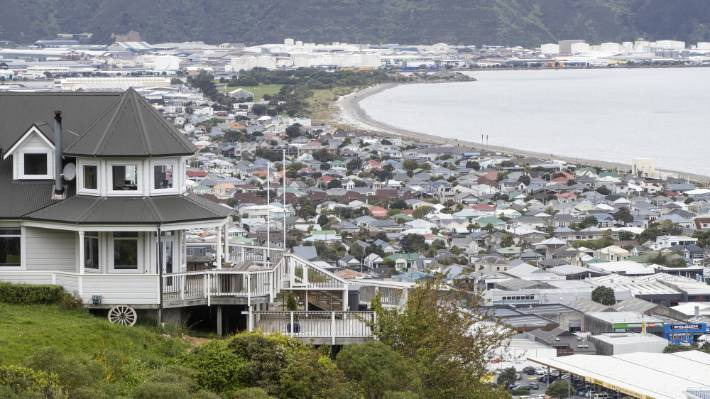New Zealand now has the second-slowest rate of house price growth in the world, an international property consultancy says.
The Knight Frank Global House Price Index shows average house price increases across 56 countries slowed to 3.6% in the year ending March.
Increases were down from 5.7% in the previous quarter, and from a peak of 11.1% in the year ending March 2022, which was when housing markets boomed in the aftermath of the pandemic.
While 17 of the countries tracked recorded annual price falls, New Zealand exemplified the change in market trajectory.
Two years ago, the country was at number two on the index, with a price increase of 22.1% in the year to March 2021.
But in the latest index it was ranked number 55 out of 56 countries, with a price decrease of 13% in the year to March.
Only South Korea had a bigger decline, with prices down 15.7% annually.
Turkey was ranked number one, with prices up 132.8% annually, but it was noted that was largely due to the country’s rampant inflation, which was near 40% in May.

North Macedonia and Croatia took out the second and third places with increases of 18.8% and 17.3% respectively. Also, in the top five were Hungary and Lithuania at 16.6% and 15.3%.
The United Kingdom, Australia and Canada were ranked at 47, 48 and 50 with price falls of 3.1%, 5% and 6.9%.
Knight Frank global head of research Liam Bailey said prices globally were under pressure as central banks tried to rein in inflation, and were rising at the slowest annual rate since the third quarter of 2015.
While the latest figures revealed a substantial slowdown in annual price increases, quarterly increases had improved, he said.
“Global house prices contracted 0.6% in the final three months of 2022, and yet there was a 1.5% rise in the first three months of 2023.”
On its own, the reversal did not confirm that global markets were set to improve, he said.
“Rather, it highlights that tight supply, limited new housing construction and strong household formation are acting to underpin prices in many markets.”

New Zealand had seen one of the biggest corrections in prices in the current cycle, but it might soon point to an exit route from the global housing slowdown, he said.
“While prices are likely to fall further, the speed and depth of the correction suggest an uptick in both demand, and eventually prices will come back earlier than in many other developed markets.
“ANZ bank expects growth in both metrics before the end of the year.”
There were still several risks ahead for most markets, and inflation remained the main issue, he said.
Over recent weeks claims from commentators that New Zealand’s housing downturn had started to bottom out have increased, although some believed there was further to go.
ANZ, ASB, BNZ and Westpac have all said there were signs the market was turning, and revised up their forecasts to anticipate very moderate price increases over the second half of this year.
But CoreLogic’s latest figures suggested there might be more market volatility to come as the national rate of price falls almost doubled in June compared to the month before.
CoreLogic head of research Nick Goodall said market conditions remained diverse, but he believed the worst of the downturn was generally over for most areas.
Most commentators have said that while the downturn might be coming to an end, it did not mean the market was about to boom again.
Despite the steep fall in prices since the peak of the market, they remained at higher levels than they were pre-Covid, and affordability was still stretched.

